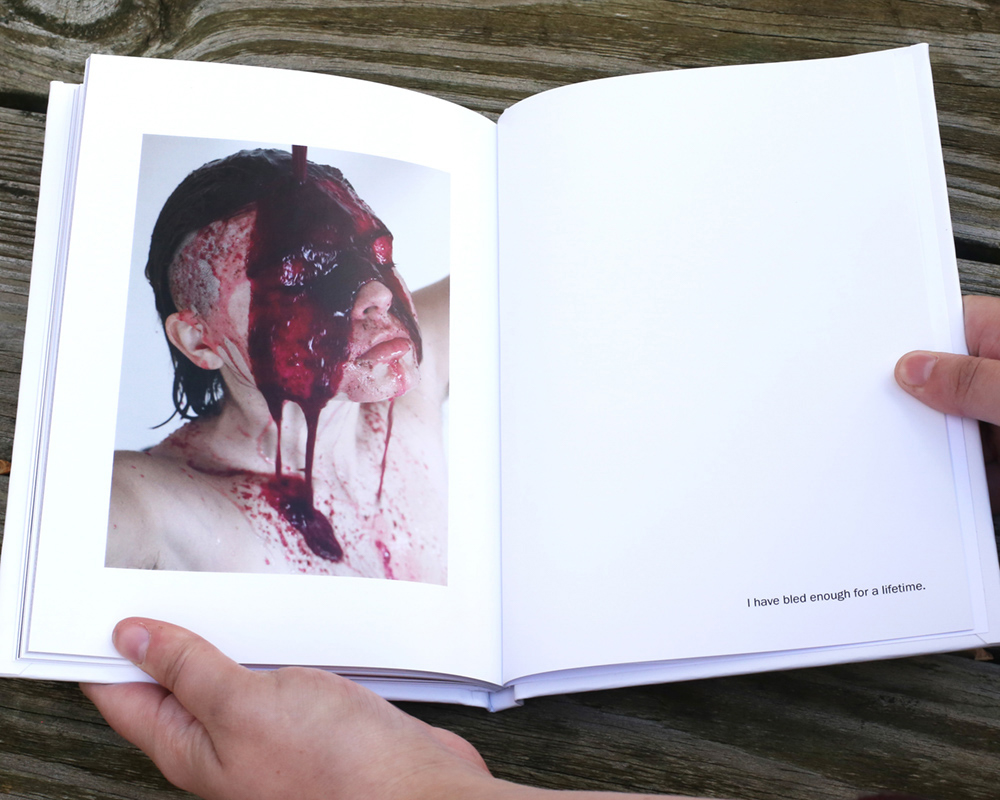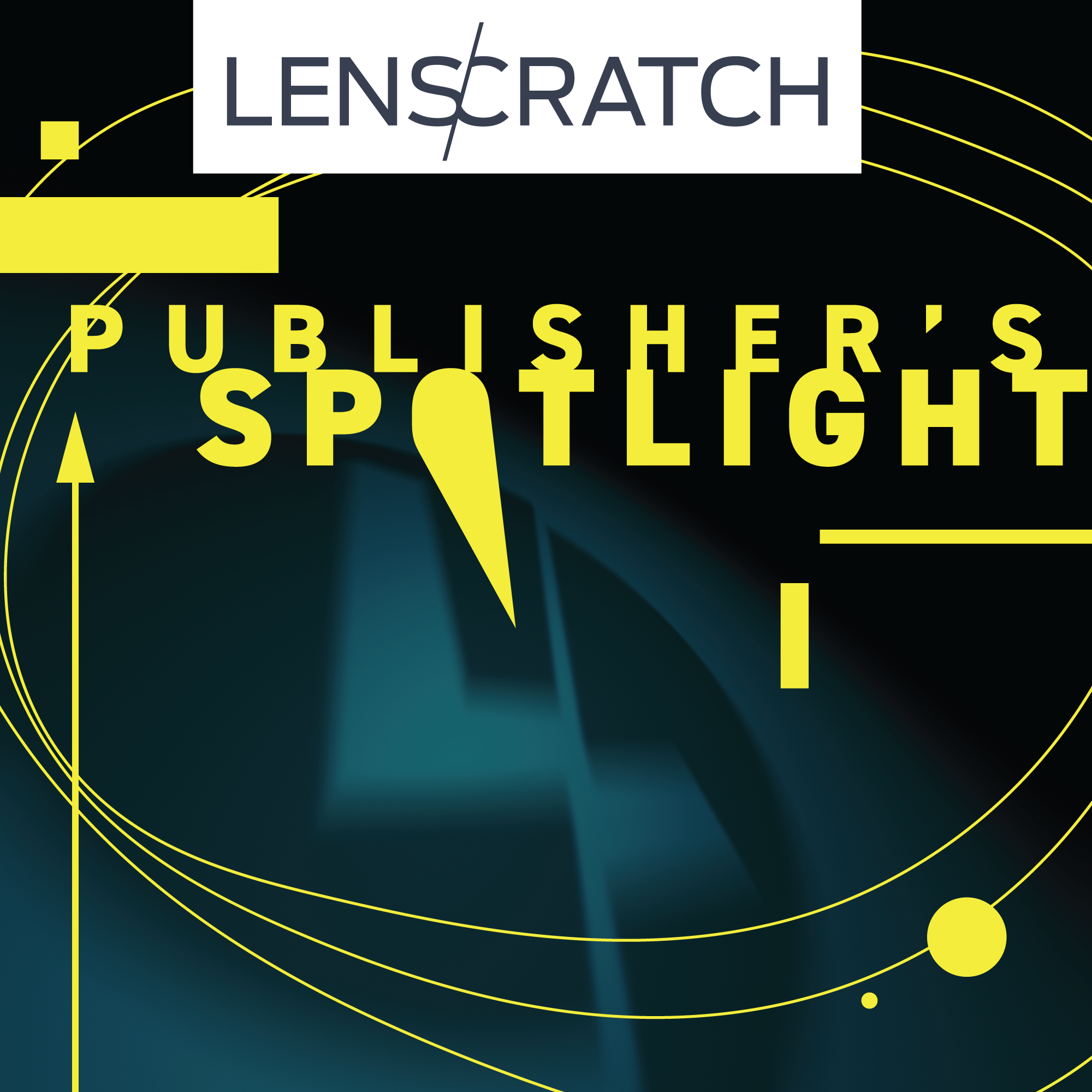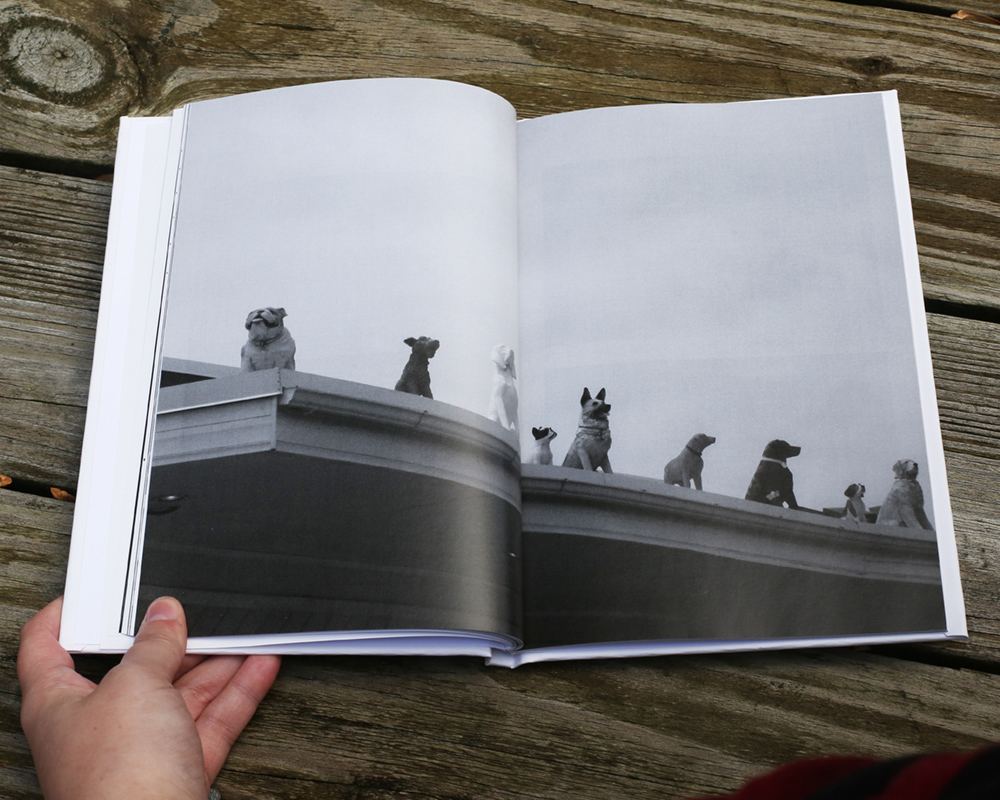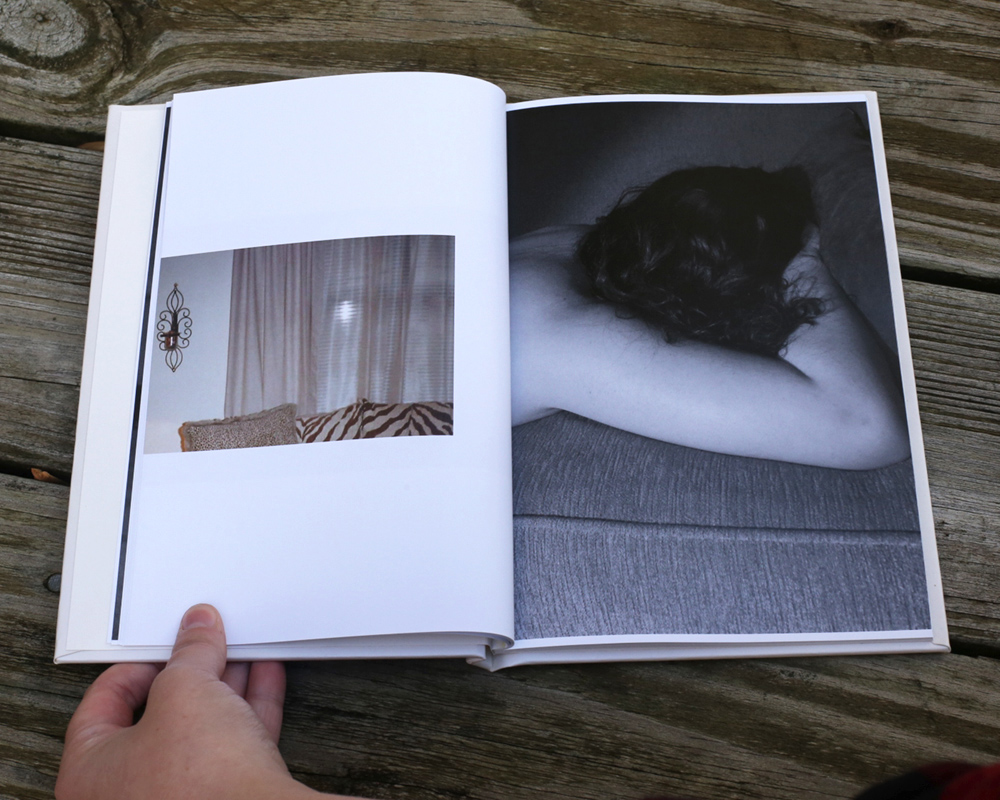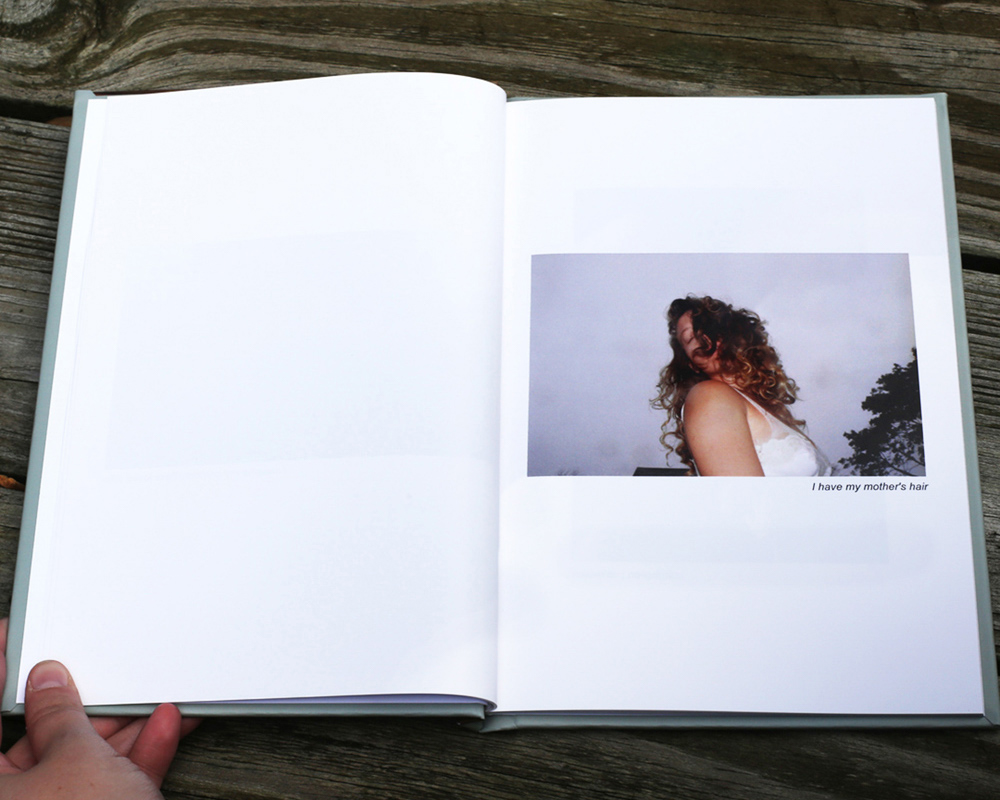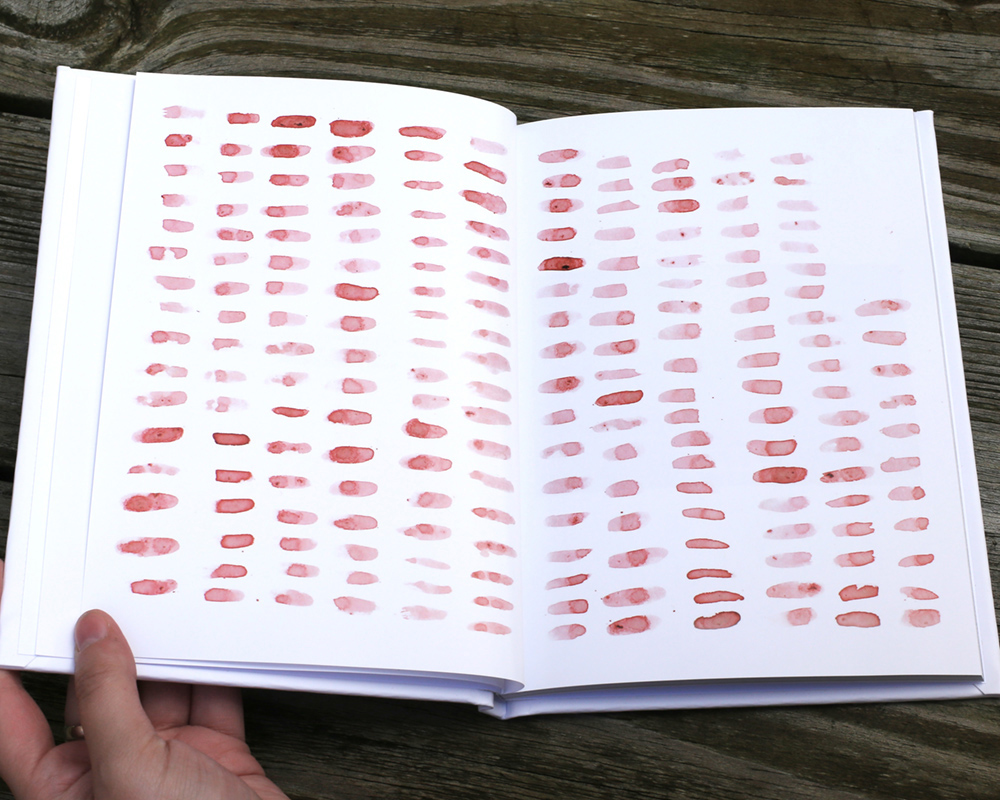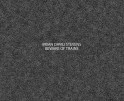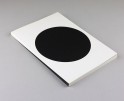Publisher’s Spotlight: Fifth Wheel Press
The past weeks have been all about books on Lenscratch. In order to understand the contemporary photo book landscape, we are interviewing and celebrating significant photography book publishers, large and small, who are elevating photographs on the page through design and unique presentation. We are so grateful for the time and energies these publishers have extended to share their perspectives, missions, and most importantly, their books.
Today, photographer Lisa McCarty interviews Nat Raum.
Originally founded by editor-in-chief Nat Raum in 2019 as a photobook press for lens-based artists of marginalized genders, Fifth Wheel Press is a literary and art publishing space for those who are historically underrepresented in creative communities. We publish dynamic art and writing by queer, trans, and gender-nonconforming creatives in the form of monographs, zines, anthologies, chapbooks, and more. We believe a truly inclusive space must be intersectional; as such, we welcome, celebrate, and prioritize submissions from those who belong to other marginalized groups in addition to the queer community, including but not limited to BIPOC, disabled, and neurodivergent artists and writers. We value honesty, integrity, and empathy above all. Our published artists and writers possess not only an exceptional level of talent that we want to honor, but also a demonstrated understanding of these values.
Follow Fifth Wheel Press on Instagram: @fifthwheelpress
What was the first book you published, and what did you learn from that experience?
I’ve self-published before, but as a publisher, our first two releases were Upon Reflection: The World Ended in 2012 by Kasey Edgerton and my most recent monograph, waver / quiver. I feel like I am constantly learning more as I continue this journey, but the experience was essentially a crash course in how to actually set up a book for print. Our printer is fairly finicky and specific, whereas the printers I had used in the past to self-publish were a bit more flexible with file formats and specifications. Being more specific has definitely expanded my knowledge of the aspects of book design that I hadn’t already picked up from my experience self-publishing.
What is your mission as a publisher?
I started the press when I received what felt like the hundredth rejection letter from another press that seemingly only published cishet white men. This was prior to my gender transition, but I still found myself wondering if I had a chance getting published if I was going up against artists who had privileges I never would. Furthermore, I’d talked to so many people who’d felt like they lost creative control over their book once handing it over to a publisher, or that the publishing partnership did not value their time and effort. Our mission is to break down antiquated publishing industry standards to make publishing accessible and equitable.
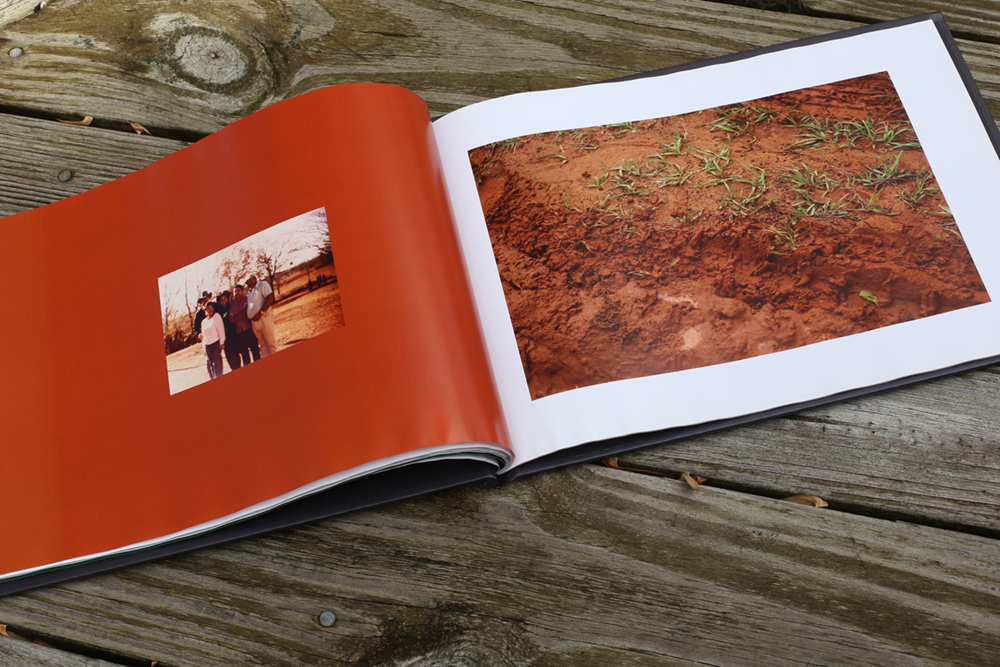
© Jamie Robertson/Fifth Wheel Press, Charting the Afriscape of Leon County, Texas by Jamie Robertson
How big is your organization?
Right now, there are just two of us (me and our art director, Aden Weisel), but we’re planning to add a poetry reader and a digital communications manager in the new year.
What are the difficulties that publishers face?
Anyone who works in publishing will tell you that you don’t go into publishing to make money, but for the passion of it all. Our first releases were slated for July 2020 and I’d lost my job in March because of the pandemic, so I had also essentially lost the months of pay I was planning to. A lot of blood, sweat, tears, and personal money goes into starting a publishing project. When we say your support means a lot to us, we are truly so grateful for it, because it’s almost impossible to fund an indie publishing project without audience support.
Are there any publishing projects that have been particular meaningful to you?
It’s so hard to name just one! Some favorites of mine on the photography side of the press are Frances Bukovsky’s Vessel and Jamie Robertson’s Charting the Afriscape of Leon County, Texas. I also love curating our annual zine, Hazey, each year.
What upcoming projects are you excited about?
We’re currently wrapping up our first-ever calendar, which is an image/text 2022 calendar created by 12 pairs of artists and writers. We’re in the final month of submissions for Hazey, and the work we’ve received so far has been incredible. I’m also incredibly excited about the chapbooks we’re releasing on the poetry side of the press next year, as well as opening monograph submissions again.
How many books do you publish a year, and how do you choose which projects to publish? Do you have a specific focus?
Our first year, we published 5 books and 2 zines. Due to some health issues, I took an extended hiatus from working on the press this year, but we are planning to be back next year with the same number. Our monographs are chosen from open call submissions, which we open once a year. Because so much of my personal work relates to identity and lived experience, I tend to gravitate towards work with some sort of personal connection, whether that is an exploration of identity politics or a compelling personal narrative from the artist/writer.
How can an artist get their work in front of you? Do you have any advice for photographers?
We open monograph submissions once a year, as well as two calls each year for group zines, but we are always on the lookout for new work! Getting your work in front of a publisher by any means possible, even if it’s just a group zine call, is a great way to get on their radar. Be sure to read submission guidelines thoroughly and pay attention to when publishers are open for submissions.
What is the typical timeline of a project, from the beginning to the finished product?
I generally work on a fairly abbreviated timeline, but I consider the actual “publishing process” with us to be about 4-6 months. I consider that to start at the first due date for each artist, which is typically the a series of promotional images we use to announce the title. Over those months, the artist and I work on marketing the title and finishing the layout for print.
How collaborative is the design process with the artist?
For the most part, our artists design their books themselves with a bit of input from us with regards to sequencing and formatting. It’s very important to me that the artists we work with still feel as though it’s distinctly their project, and I really like to let people have as much creative control as they want over the design process.
How is the financial side of the project structured between publisher and artist? Does the artist contribute to production cost?
We do not require artists to contribute to the production cost unless they wish to increase the edition size of the book from our standard size. We split proceeds (determined by the total retail cost minus the cost to print & sell each copy) 60/40 with the artist receiving the greater share. We are mostly funded by previous title sales, optional paid add-ons for written submissions, and donations.
What support do you give artists in terms of marketing or distribution? Do you attend book fairs?
We do most of our marketing digitally, but we also attend local markets (Baltimore, MD and surrounding areas) and offer a stockist discount to storefronts interested in carrying our books. We currently have a few titles for sale through Baltimore Photo Space in addition to our site.
What advice would you give to a photographer who is working on their first book?
Sit with it for a while. The idea might be jumping out of your head, but it will also change over time. Learn to be okay with that; it’s almost always good change. My process opened up so wide when I started sitting with projects for longer. Allowing myself the time to think also let the iterative side of my process come out, and I was able to incorporate ideas I would have never thought of the first time around.
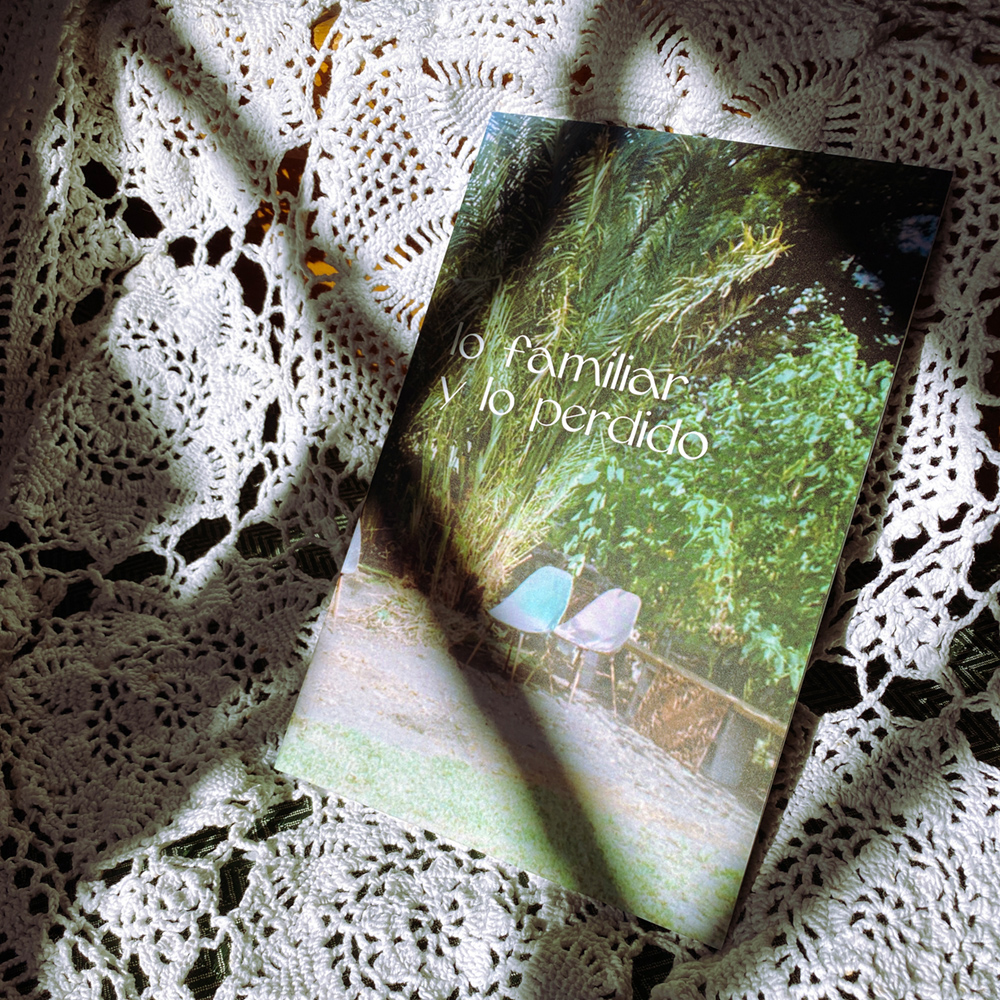
© Fifth Wheel Press, Lo Familiar y lo Perdido curated by Mujeres Malas and published by Fifth Wheel Press
Is there anything we haven’t asked that you’d like to share about your books or approach to publishing?
Publishing has a terrible rap for being a pretentious, elitist, and brutally competitive industry, and large publishing houses certainly aren’t doing us any favors. I’m extremely encouraged by the direction I’m seeing the industry move, led by a lot of people in indie publishing who are just as frustrated as I was with the endless barriers and gatekeeping. Good work comes from a lot of different places, and so much of it is passed over due to circumstance and privilege in big publishing houses. I’m of the mind that if it’s always the same voices speaking, it’s not really a conversation that’s moving anything forward.
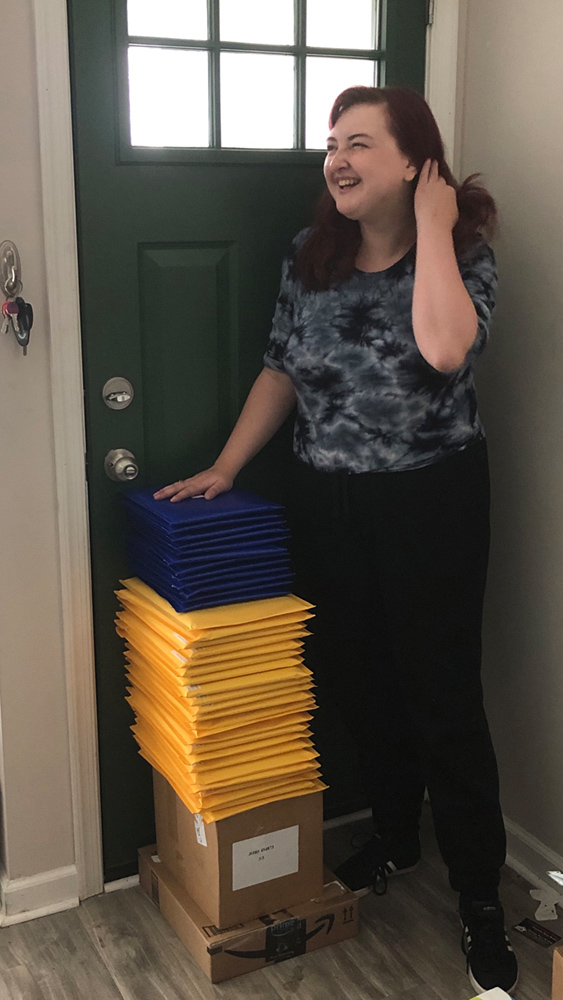
© Fifth Wheel Press, Nat sending out our biggest batch of orders to date in December 2020 (record since broken)
Lisa McCarty is an artist and writer based in Dallas, Texas where she is Assistant Professor of Photography at Southern Methodist University. McCarty has exhibited her photographs, books, and videos in over 80 exhibitions and screenings at venues including: Alchemy Film & Moving Image Festival, Amherst College, Cape Cod Museum of Art, Cassilhaus, Colorado Photographic Arts Center, Fruitlands Museum, Houston Center for Photography, Internationale Photoszene Köln, McEvoy Foundation for the Arts, Mimesis Documentary Film Festival, the Nasher Museum of Art, Noorderlicht Photo Festival, the New York Film Festival, the Ogden Museum of Southern Art, and the Visual Studies Workshop. Her books include Transcendental Concord (Radius Books), The Arboretum Aphorisms of Nathaniel Dorsky (San Francisco Cinematheque), & A Time of Youth: San Francisco, 1966-1967 by William Gedney (Duke University Press).
Follow Lisa McCarty on Instagram: @insta.lisa.mccarty
Posts on Lenscratch may not be reproduced without the permission of the Lenscratch staff and the photographer.
Recommended
-
Publisher’s Spotlight: Smog PressJanuary 3rd, 2024
-
Publisher’s Spotlight: Kult BooksNovember 10th, 2023
-
Publisher’s Spotlight: ‘cademy BooksJune 25th, 2023
-
Publisher’s Spotlight: Brown Owl PressDecember 10th, 2022
-
Publisher’s Spotlight: DOOKSSeptember 26th, 2022

